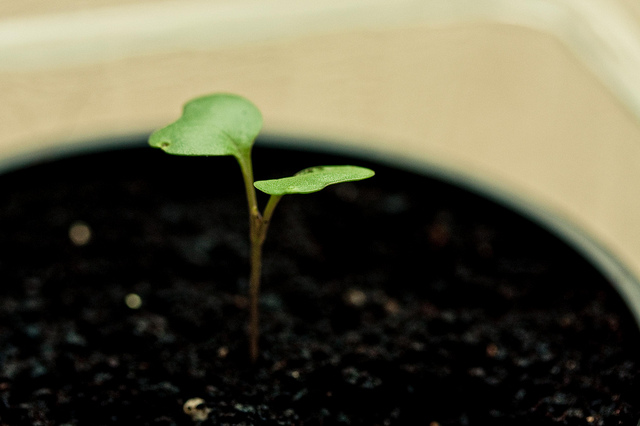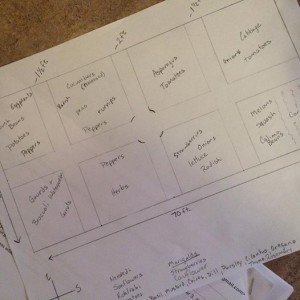So here’s a fun little experiment: pick up a book of essays written in the late 1990s about the intersection of faith and science and parse the references to impending Artificial Intelligence against the podcast you just heard about the current AI’s place within human existence. And then do a little Hebrew word study. That, my friends, is what I call a Thursday.
The quote that caught me was found in Barbara Brown Taylor’s The Luminous Web: Essays on Science and Religion (of which its second publishing was the year 2000 – you know, that time when we were stock-piling dry goods because of Y2K?) She was quoting another scientist, Rodney Brooks, who said, “a disembodied intelligence cannot experience the world as humans do… Only through experience as a physical being can smart robots develop emotions… which are essential for a truly intelligent being.”
This is not something that Yuval Noah Harari highlighted in his interview on Armchair Expert. Harari didn’t bring up embodiment, but he did make my heart beat faster when he spoke of the power of editing as an essential feature throughout human history. He reminds us that not all thoughts need elevated. The role of the editor – be it in journalism or otherwise – is holding ideas and asking if they need to be created into a thing.
This is a deeply spiritual and ancient idea. In the ancient Hebrew language, the word for “word” is davar, which also means “thing.” In the Hebrew mind, words have as much substance any thing. Indeed, words are the creative energy of the world. In the Genesis story, it’s all about how God uses a word and a thing appeared.
But it’s more than just abracadabra (a mismash of Hebrew believed to mean “I will create as I speak”). That creative energy orders things. The emergence of the heavens and the Earth of Genesis 1 is an ordering of Chaos (the Tohu Va-Vohu).
When you take this idea, that you speak things into existence, and you hold it against the function of AI at the current day – a chatGPT that you command, with words, what you’re looking for and it uses an expansive knowledgebase from the digital world to create a document or image – and we’re starting to get a lot more God-like.
Of course, we’ve always held the power the create with words; they mostly developed in the mental/emotional world before emerging into the physical. We could speak a complement into a person, but it had to be circulated through their heart and mind before we saw the physical manifestation with a light in their eyes or a lift of their posture. Coaches and teachers have that magical power to create with words – I had the most fascinating conversation with a higher-level coach about how changing the way she spoke to her player changed the way the player was able to perform physically at the game. We humans have always joined God in the co-creative power to make things – and we’ve used human bodies to see them created. (And now you know why becoming a yoga teacher was the natural next progression of ministry.)
So join me for a moment in John 1:14: The Word became flesh and made his dwelling among us.
John starts his letter reminding folks that In the Beginning (literally: Genesis), the Word was with God and the Word was God…. through him all things were made; without him nothing was made.
Creation involves bodies. Bodies of water, bodies of land, bodies of flesh, bodies of thought, bodies of work. Words become things. God said it, and it was. We speak it, and it becomes.
If Brooks was right, way back before I was learning to drive, then AI’s power remains useless without humans. The entire enterprise is built upon the human initiative to give it orders. My cousin, who professionally dwells in the digital world, told me post-podcast share, “AI cannot invent a lie. It doesn’t invent, it can only decide among what it knows. And it employs that decision making mechanically without emotion.”
Humans remain supreme over AI as long as they lack bodies, where emotion lives. This is the difference between intelligence and actual life: embodiment.
The Word became flesh and made his dwelling among us.
That which creates became created. The very act of creation becomes created. The source of the idea that a two-footed creature needed approximately 10 individual toes – bones, muscle, tendons, nerves, with a little protective nail on top that we can decorate if we wish – in order to balance upright, that source put on toes and walked around in them. That source experienced the plight of ingrown toenails and wondered, “whose idea was this?!” That source of such an idea did not just command it from above – that source lived it from within.
Barbara Brown Taylor writes in this outdated but delightful little book, “When truth and belief come into conflict, it is better to change one’s belief to fit the truth than to change the truth to fit one’s belief.” She’s citing a scientist there, who I’m sure had no idea what the movement of faith deconstruction would look like 30 years later.
As one who has rode the waves of deconstruction yet remains tethered to a buoy of truth, these ancient but essential ideas are much of what continues to anchor me to Jesus: Word of the Father, now in flesh appearing.
Creative, generative energy that gives me life also lives within me and also lives beside me.
As Eugene Peterson wrote it in his translation of John 1: The Word became flesh and blood, and moved into the neighborhood.
I continue to read and pursue science not as a reason to continue to deconstruct my faith, but rather to give me insight on exactly what I’m choosing to believe as I understand truth. Our technology and human development in general will continue to take us down a path of asking how the notion of God is relevant when so much can be artificially be created. If AI can make an image on command, why would we cozy up to the idea of a celestial being that doesn’t have a predictable alogorithm?
For me, it’s the word becoming flesh. AI doesn’t stay up at night fearing for the future of its children. ChatGPT doesn’t relive its mistakes with a sense of regret. The experience in a body of feeling tension and ease, delight and remorse are where we find life. The tears that fall when holding a yearned-for newborn or grieving a practically-perfect mother are what remind us that we are human and this matters.
My only way to experience this world is through my body. The space/time continuum requires a physicality and flesh and blood is its vehicle. Our ability to feel it all keeps us human.



